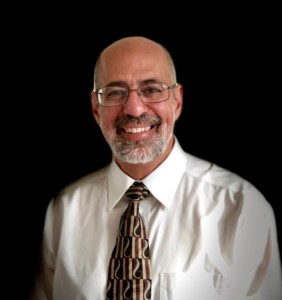If Dr. Martin Luther King, Jr. is rightfully referred to as the moral leader of our nation, then Historically Black Colleges and Universities (HBCUs ) are its moral incubators.
King’s moral leadership is attributed to his eloquent ability to admonish America for its hypocrisies and his philosophical commitment to what he called the “marvelous new militancy” or nonviolent direct action, that beautiful blend of righteous resistance and practical precepts.
King’s moral leadership was forged in the fires of his life experiences: the loving embrace of his family, his spiritual growth in his Christian faith, and—critically—the social justice orientation of his education at Morehouse College, one of more than 100 renowned HBCUs that embrace and mold Black scholars and sages, professionals and politicians, artists, and activists. King began his “pilgrimage to nonviolence” at Morehouse in 1944, where he learned how Henry David Thoreau used civil disobedience to resist the State’s immoral conduct regarding slavery and its indigenous people.
However, Morehouse’s cultivation of King is not a one-off for this great institution or unique to HBCUs in general. Long before King, there were nonviolent social justice warriors like Howard Thurman, the 1923 valedictorian at Morehouse. He headed a Christian mission and met with political and spiritual leader Mohandas K. Gandhi and NAACP co-founder W.E.B. Du Bois, who graduated from Fisk University and engaged in correspondence with Gandhi.
HBCU’s nourished and developed many of the Civil Rights Movement’s nonviolent leaders, such as the late Congressman John Lewis, Ella Baker, Diane Nash, and the A&T Four. In 1960, Joseph McNeil, Franklin McCain, Ezell Blair, Jr., and David Richmond, known as the A&T Four, popularized sit-ins at a Woolworth’s lunch counter near North Carolina A&T State University, the HBCU they attended in Greensboro. Ella Baker, who attended Shaw University in Raleigh, North Carolina, and graduated as valedictorian in 1927, returned to Shaw in 1960 to co-found the Student Nonviolent Coordinating Committee (SNCC). Diane Nash, who also co-founded SNCC and organized sit-ins and freedom rides, attended Howard University in Washington, DC, as well as Fisk University.
John Lewis, who got into “good trouble” leading nonviolent soldiers over the Edmund Pettus Bridge on Bloody Sunday in 1965, graduated from two HBCUs in Nashville, Tennessee, American Baptist Theological Seminary and Fisk University. In the 1968 Orangeburg Massacre, Samuel Hammond, Delano Middleton, and Henry Smith were shot to death by police during a protest for equal rights by students from South Carolina State College and Claflin College, both HBCUs in Orangeburg, South Carolina.
The nonviolent resistance of these HBCU activists reflects King’s impassioned belief that violence cannot replace violence, nor can it perform the healing function: only nonviolence can do that. The only way to create King’s Beloved Community, the only way to redeem America’s tarnished soul from its original sin, was to morally regenerate American society based on love and nonviolence. For generations, students at HBCUs have played a leading role in admonishing America to adhere to these eternal truths.
Born of the sin of slavery and segregation, HBCUs point the path toward righteous resistance and moral leadership. Even today, HBCUs remain moral incubators as they continue to mold leaders in the tradition of nonviolence.
Howard University students have organized town halls with police and demonstrated on a wide range of human rights issues. Students at Tennessee State University in Nashville protested against gun violence and secured increased spending for campus security efforts. Prairie View A&M University students have organized nonviolent campaigns to bring change not only to Waller County’s suppressive election practices but also to its prison in the wake of the tragic death of Sandra Bland.
Given that so many HBCU activists were inspired by Gandhi’s nonviolent activism in India, it is vital to acknowledge the phenomenal global full circle event of January 20, 2021, when Howard University alumna Kamala Harris, daughter of Indian and Jamaican scholars and civil rights activists, was sworn in as Vice President of the United States of America. As the first woman Vice President of African descent who was born and raised in Black American culture, Harris will carry on the HBCU tradition of moral leadership for social justice from one of the most powerful positions in the world.
Michael J. Nojeim, Ph.D., is professor and program coordinator of political science in Prairie View A&M University’s Marvin D. and June Samuel Brailsford College of Arts and Sciences.

